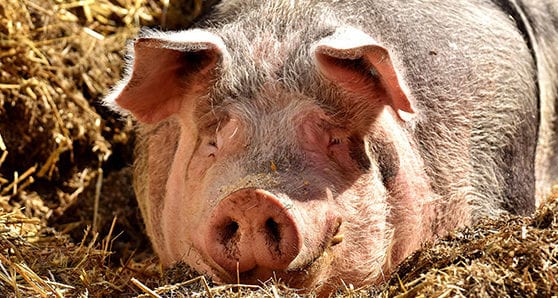 Two recent cases make Canada’s political elite look like diplomatic juveniles.
Two recent cases make Canada’s political elite look like diplomatic juveniles.
The SNC-Lavalin debacle refuses to go away, garnering global media attention for weeks. The Meng Wanzhou case in Vancouver has made things much worse.
The arrest of Meng – a Huawei vice-president and daughter of the company’s CEO – in December exposed Canada to vicious criticism and internal strife.
John McCallum, our former ambassador to China, lost his job in January for being reckless with Chinese media by stating that a deal to release Meng was imminent.
And even though Prime Minister Justin Trudeau has argued countless times that Meng’s arrest had no underlying political intentions, that’s difficult to believe.
So we shouldn’t be surprised that China continues to ramp up diplomatic pressure on Canada through its decision to stop buying Canadian canola seed.
At first, the decision affected just Canada’s largest canola exporter, Richardson Oilseed. Now it’s affecting everyone.
China’s decision to target canola is no coincidence, since that country is our biggest canola export customer. And canola is the most Canadian commodity there is. It was invented here and is arguably one of Canada’s greatest accomplishments in biotechnology. Its name combines Canada and ola (oil). Canola is a $27-billion industry here and almost 250,000 jobs depend on it. More than 43,000 farmers grow canola every year across the Prairies. And more than 75 per cent of canola produced in Canada is exported.
China’s message to Canada is brilliantly measured and maliciously effective. The entire world knows China is having a diplomatic spat with Canada, undoubtably affecting our country’s reputation.
And this isn’t just about canola – it’s more about Canada’s inability to network with other major markets.
But none of this should come as a surprise. For China, foreign and trade policies are always intertwined.
Trudeau has said he knew Meng was going to be arrested when she arrived in Vancouver. Some analysts suggest this situation could have been averted if someone had advised her that she wasn’t welcome in Canada, given the U.S. indictments against her. One message and all of this could have been circumvented.
Diplomacy is about getting along and working with other countries. It’s also about avoiding embarrassing situations like this one.
Now, however, more sanctions from China are likely.
In 2018, Canada exported $21.8 billion in goods to China, more than half of it agricultural. That means soybeans, pork, lobsters and beef could be next on China’s ban list.
Canada must learn how to deal with China’s other great wall as the country weaponizes market access. Guy St-Jacques, a former Canadian ambassador to China, has suggested it’s time to get tough.
Given the size of our economy and our diplomatic track-record under the current government, it’s difficult to see how any forceful measures by Ottawa can be taken seriously. We still don’t even have a new ambassador to China.
Our best ally in this conundrum is Washington. But our relationship with the Americans isn’t what it was in 1985 when President Ronald Reagan and Prime Minister Brian Mulroney sang When Irish Eyes are Smiling at a summit.
What was largely forgotten about that famous meeting is that the Americans wanted to add duties to many Canadian imported products. The summit mended our relations in the post-Pierre Trudeau/Richard Nixon era. Diplomacy prevailed and further conversations led to the North American Free Trade Agreement.
Things are certainly not the same now and the Americans won’t necessarily appreciate our assistance on the Meng case.
Saskatchewan Premier Scott Moe is running out of patience and says he expects Ottawa to retaliate. But new federal Agriculture Minister Marie-Claude Bibeau is banking on science-based practices to convince the Chinese, even though these efforts are likely in vain.
The only thing left for the government is to proceed with the extradition of Meng and hope for the best.
Meanwhile, the recent federal budget contained provisions for the dairy, poultry and egg sectors, all affected by recently-ratified trade agreements. Finance Minister Bill Morneau may want to reconsider how to help other sectors negatively affected by trade.
One thing is for sure: the target of $75 billion in agriculture and food exports by 2025 is now little more than a pipe dream.
Dr. Sylvain Charlebois is senior director of the agri-food analytics lab and a professor in food distribution and policy at Dalhousie University.
Sylvain is a Troy Media Thought Leader. Why aren’t you?
For interview requests, click here. You must be a Troy Media Marketplace subscriber to access our Sourcebook.
The views, opinions and positions expressed by columnists and contributors are the author’s alone. They do not inherently or expressly reflect the views, opinions and/or positions of our publication.


